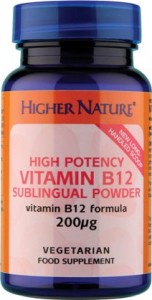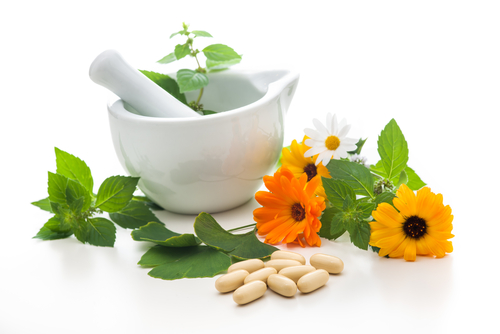Pretty much everybody – even children – are aware that the organic compounds known as vitamins are vital to the preservation of human health, but while most people have heard of Vitamins A, B (Complex), C and D – and some are familiar with them – how many people know that much about Vitamin E? Chances are not that many. And yet, just like its fellow vitamins, ‘E’ is essential to keeping us fit and healthy and our bodies happily functioning as they should.
So, just what’s so special about Vitamin E? What makes it so important to our well-being? Well, principally it’s because it functions as such a good and reliable antioxidant1, thus combating the harmful, highly reactive molecules that occur in our bodies known as ‘free radicals’. Now, because these molecules are ‘uncharged’ (they’re forever after an electron to pair with their single electron) they attack and damage cells in their quest to become ‘charged’ and complete, thus potentially leading to many ailments. This process is referred to as oxidative stress2 and so requires antioxidants to counteract and neutralise the harmful effects of free radicals to the tissues of the skin3, eyes4, liver, breast, lungs and testes6, 7 – which is where Vitamin E comes in.
Antioxidant benefits
As a result of its invaluable antioxidant properties then, Vitamin E is believed to help with a whole range of issues, not least arthritis8, compromised eyesight9, gout10 and atherosclerosis6. Moreover, in combating free radical formation that would otherwise see the molecules spread throughout the body, it can help prevent chain reactions that might lead to the emergence of diseases such as cardiovascular and heart disease, hypertension, senility and even forms cancer6.
And it doesn’t end there; further Vitamin E benefits include reducing menstrual pains and disorders such as vaginal itching dryness6 and migraines11, as well as help treat fatty liver disease12, muscular dystrophy13, restless leg syndrome14, shingles15 and diabetes-related circulatory problems16. Plus, in tandem with Vitamin A, there’s research to suggest Vitamin E may help reduce cholesterol and accumulation of fat6.
Vitamin E sources
So, with its myriad health benefits, it would be no surprise you decided to check if you’re getting enough of Vitamin E. The good news is that if you practice a well-balanced, healthy diet, there’s a decent chance you do. If not, though, you might look to boost your vegetable, seed and nut intake6. To that end, almonds, broccoli, avocados, hazelnuts, kale, mustard greens, papayas, parsley, pine nuts, olives, raw seeds, spinach, Swiss chard and turnip greens are all noted strong sources for the vitamin.
But what if you’re unable to alter your diet sufficiently (you might well have a nut allergy, for instance)? Well, there are a good number of Vitamin E supplements on the market and that means it’s in your interest to check out and discover the best and most value-for-money products. In which case, may we turn your attention to the ‘Vitamins & Minerals’ section of The Finchley Clinic website where you’ll find a fine selection of supplements containing Vitamin E and more; the following three of which are all highly recommended:
BioCare Adult Multivitamins & Minerals – a one-a-day capsule for all round nutritional support, features Vitamins A, B (Complex), C, D and E, as well as zinc, magnesium and selenium.
True Food Natural Vitamin E – a highly bio-available food form of Vitamin E that helps protect cell membranes from oxidative damage and supports healthy skin; can also be taken with True Food Soyagen for menopause support.
Microcell Vitamin E 200 – micellised into small droplets by BioCare’s unique MicroCell process for enhanced absorption and bioavailability.
References:
1. ‘Vitamin E: Health Sheet for Health Professionals’. National Institute of Health. May 2016.
2. Jakus V. ‘The role of free radicals, oxidative stress and antioxidant systems in diabetic vascular disease’. Bratisl Lek Listy. 2000. 101(10): 541-51.
3. Thiele J. J., Hsieh S. N. and Ekanayake-Mudiyanselage S. ‘Vitamin E: critical review of its current use in cosmetic and clinical dermatology’. Dermatol Surg. July 2005. 31 (7 Pt 2): 805-13.
4. Rizvi, S. et al. ‘The Role of Vitamin E in Human Health and Some Diseases’. Sultan Qaboos University Medical Journal 14.2 2014: e157–e165.
5. Applegate T. J. and Sell J. L. ‘Effect of dietary linoleic to linolenic acid ratio and vitamin E supplementation on vitamin E status of poults’. Poult Sci. July 1996. 75 (7): 881-90
6. Lobo V. et al. ‘Free Radicals, Antioxidants and Functional Foods: Impact on Human Health’. Pharmacognosy Reviews 4.8 2010: 118–126. PMC.
7. Choi E. J., Bae S. C., Yu R., Youn J. and Sung M. K. ‘Dietary vitamin E and quercetin modulate inflammatory responses of collagen-induced arthritis in mice’. J Med Food. Aug 2009.12 (4): 770-5.
8. Larsen P. D., Mock D. M. and O’Connor P. S. ‘Vitamin E deficiency associated with vision loss and bulbar weakness’. Ann Neurol. 1985 Dec. 18 (6): 725-7
9. Hsu D-Z. et al. ‘Therapeutic Effects of Sesame Oil on Monosodium Urate Crystal-Induced Acute Inflammatory Response in Rats’. SpringerPlus 2. 2013: 659. PMC.
10. Ziaei S., Kazemnejad A. and Sedighi A. ‘The effect of vitamin E on the treatment of menstrual migraine’. Med Sci Monit. Jan 2009. 15(1): CR16-9.
11. Arani K. S. et al. ‘Effect of Vitamin E and Metformin on Fatty Liver Disease in Obese Children- Randomized Clinical Trial’. Iranian Journal of Public Health 43.10 2014: 1417–1423.
12. Berneske G. M. et al. ‘Clinical Trial of High Dosage Vitamin E in Human Muscular Dystrophy’. Canadian Medical Association Journal 82.8 1960: 418–421.
13. Ayres S. and Mihan R. ‘Leg Cramps (Systremma) and ‘Restless Legs’ Syndrome – Response to Vitamin E (Tocopherol)’. California Medicine 111.2 1969: 87–91.
14. Nicholas J. A. et al. ‘Design of Oral Agents for the Management of Multiple Sclerosis: Benefit and Risk Assessment for Dimethyl Fumarate’. Drug Design, Development and Therapy 8 2014: 897–908. PMC.
15. Baburao Jain, A. and Anand Jain V. ‘Vitamin E, Its Beneficial Role in Diabetes Mellitus (DM) and Its Complications’. Journal of Clinical and Diagnostic Research: JCDR 6.10 2012: 1624–1628. PMC.

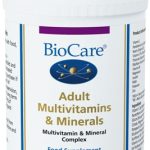
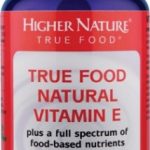
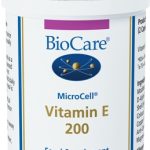
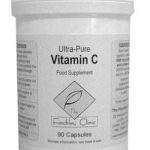


 Mark G. Lester
Mark G. Lester We’ll keep this one brief. We’ve got up to 70% off on a number of clearance items (due to short expiry dates) in our summer sale. The full list is found
We’ll keep this one brief. We’ve got up to 70% off on a number of clearance items (due to short expiry dates) in our summer sale. The full list is found 